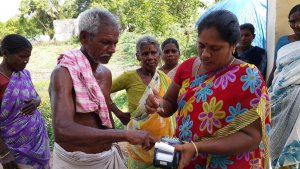GUERIN Isabelle
Type de programme
Date début et fin du programme
01/11/2019-01/10/2022
Nom des responsables
Katherine Brickell, Royal Holloway, University of London
Résumé
"Small-scale credit is exalted in mainstream development thinking as a key means of supporting women and their families in dealing with daily, ongoing, and often slow-onset climate disasters. Facing growing crises of agricultural productivity from droughts and floods, and taking primary responsibility for the nutritional wellbeing of their households, women are targeted as credit borrowers globally. Credit provisioning therefore speaks to the push for ’resilience’ against climate disasters that is central to Sustainable Development Goal (SDG) 13, ’Take urgent action to combat climate change and its impacts’, and which has serious implications for SDG 5 ’Achieve gender equality and empower all women and girls’ that prioritises the valuing and recognition of women’s unpaid care and domestic work. How do we ensure, then, that ’climate resilience’ does not come at the cost of women’s emotional and bodily depletion through processes of household nutrition provisioning ? This is the key concern motivating this two-year project which asks :
(1) In what ways is credit, as a form of climate resilience, shaping nutritional provisioning ?
(2) How are the dynamics of nutrition provisioning and credit-taking in a changing climate being experienced and visualised ?
(3) What are the gender and social reproductive dynamics of the climate-credit-nutrition nexus ?
(4) What lessons can be learned to deliver improved and more equitable credit provisioning and nutritional outcomes to households and communities affected by slow-onset climate disasters ?
The project’s methodology is anchored in environmental science, visual arts, and social science methods which are combined into a well-integrated research design to effectively probe these complex questions. Set within the political economy contexts of Cambodia and Tamil Nadu, India, fieldwork encompasses the collection of environmental profiles, socio-economic and nutritional indicators, measurements of energy expenditure, and oral and visual analysis ; all through a lens that foregrounds gender dynamics. "

